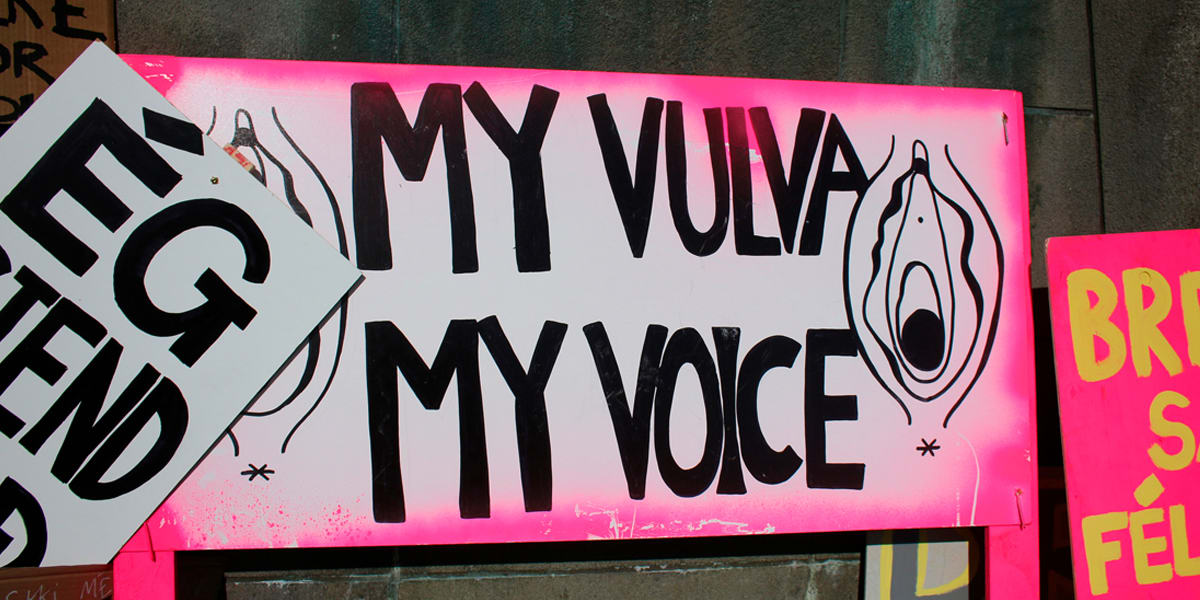Naming genitalia correctly matters- here''s why

Foo foo, hoo ha, pee pee — if you used silly nicknames like these to refer to your genitals when you were young, you are definitely not alone. Families often teach their children euphemisms for their genitals, rather than using the proper anatomical terms, like vagina, vulva, or penis.
Why do adults do this for genitals and not for any other body parts?
Well, practically speaking, it can be difficult for younger children to pronounce longer words. For example, I nannied for a 3-year-old girl who called her vagina her “gina,” no matter how many times I tried to emphasize the first syllable. However, the main reasons adults use euphemisms for genitalia have much more to do with our perception of those body parts than with kids’ ability to say them correctly.

Why use euphemisms at all?
Growing up, my parents often referred to my genitals as my “private parts” or “privates.” They — and many other families — probably chose to emphasize the private aspect of my genitals to help teach me that this was a part of my body that was only for me, and not be shared openly with other people. Children have no shame when it comes to talking about or doing whatever they want, no matter who is around (if you’ve ever seen a kid casually reach down to rub their genitals, or get undressed and start urinating in public, then you know exactly what I’m talking about). Obviously, it makes sense for families to want to keep their children safe from potential unwanted attention, or even harm, but the way we teach children to talk about their bodies goes much deeper than that.

How euphemisms can breed shame
We as a society teach kids the “rules” about what is and is not appropriate in the company of others. And it seems there is an unspoken agreement that children talking about genitals, especially in public, is inappropriate, perhaps because their talking about body parts that are related to sex is seen as too “adult.” However, encouraging children to use euphemisms for their genitals — and no other body part — can give them the impression that genitalia are shameful and embarrassing, or that it is naughty, wrong, or rude to talk about them. This kind of attitude perpetuates the stigma around speaking openly and honestly about sex, sexuality, and genitalia, which can have long-term social and physical consequences.
Children who know the correct terminology and are comfortable talking about their bodies are more likely to have a healthy relationship with their bodies and their sexuality. According to the National Sexual Violence Resource Center, teaching children anatomically correct terms promotes positive body image, self-confidence, and parent-child communication. Additionally, children who know the correct terminology for genitalia are better equipped to disclose sexual abuse — the more comfortable they are with their bodies, the more likely they will be able to talk about it when something uncomfortable or inappropriate happens to them. If families shush children when they talk about their genitals or discourage them from using the proper terminology, these kids are more likely to think that talking about it will get them in trouble.
Vagina is not a dirty word
Euphemisms for genitalia usually reflect adults’ own discomfort with talking openly about those body parts, and using them will likely pass that discomfort to their children. This can lead children to think of genitalia as taboo, rather than merely private. If children grow up believing genitalia are mysterious or shameful, how can we expect them to be empowered as adults when it comes to sex, or even reproductive health? We should just call our genitals what they are, like any other body part.

Most people use the word “vagina” incorrectly
Even when people do use the proper terms for genitalia, they unfortunately get it wrong most of the time when it comes to vaginas. Whenever someone refers to a vagina, they are usually talking about the vulva — the vagina is the internal muscular canal connecting the vaginal opening to the cervix, whereas the vulva is the external genitalia, including the labia, clitoris, and vaginal and urethral openings. So why do we replace the word “vulva” with “vagina” so often? While generalizing the genital area may just stem from convenience, it also reflects a cultural bias between the two.
By calling all sexual organs the “vagina,” we are (not so subliminally) prioritizing the part that gives men sexual pleasure and is responsible for childbirth. The vulva includes the clitoris, which represents female pleasure, as most people with vaginas need clitoral stimulation in order to orgasm. So when we use the word “vagina” when we really mean “vulva,” we’re essentially erasing the part that gives people with vaginas pleasure in favor of the part that provides a purpose for others. Using the correct terminology not only reflects a more nuanced understanding of the implications behind the language we choose, but at a more fundamental level, using the proper terms empowers people to experience their bodies in a healthier, more sex-positive way.




